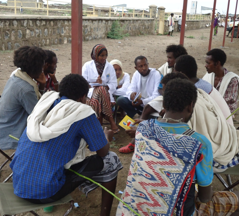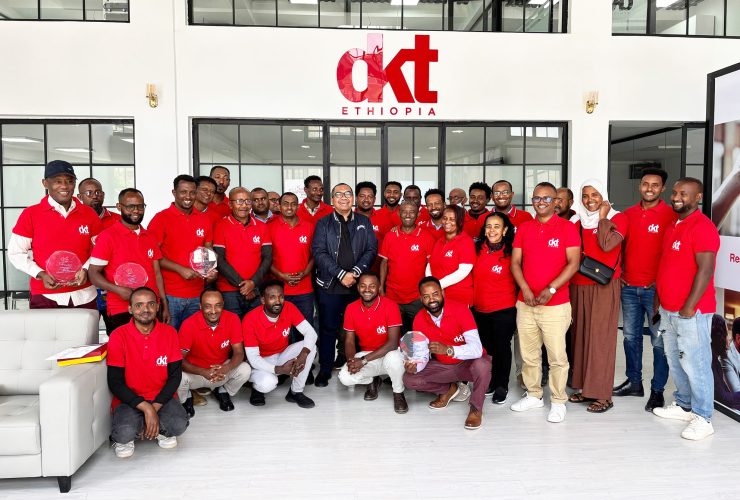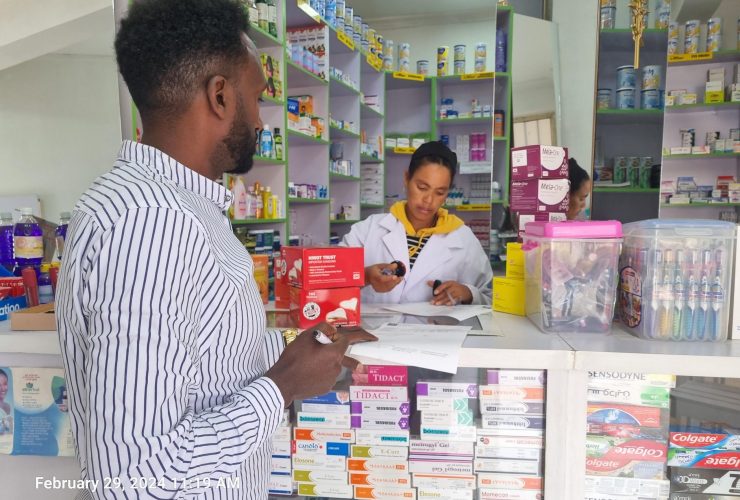Child spacing in Somali and Afar: the case of the Lekie project
Niman Ahmed, a father of two from Tekedem town in Somali Region, is pleased with the results he is seeing from using family planning.
“My wife and I are happy and our kids are healthy.”
“We are doing well physically, mentally, and financially.”
Like Niman, many residents of Somali and Afar Regions are increasingly seeking family planning as a means to space births.
“I think some people are surprised to learn that Islam supports spacing pregnancies for the sake of the child’s and mother’s health,” says Ekubarebi Mohammed, DKT Ethiopia’s Monitoring, Evaluation, and Research Officer.
“For example, the Majallah Majma al-Fiqh al-Islaami, the proceedings of a 1989 meeting of Islamic scientists in Saudi Arabia, concluded that contraception is acceptable in order to control the timing of births.”
“This conclusion is supported elsewhere as well.”
The Lekie Project
DKT Ethiopia’s Rural Social Marketing (RSM) or Lekie Project has been working in rural areas of the country, including in Afar and Somali, since 2012.
“Afar and Somali lag Ethiopia on most maternal and child health indicators” says Hirut Araya, DKT Ethiopia’s Coordinator for the Lekie Project.

“Birth spacing, including through contraception, is accepted by a number of Islamic teachings and is an important mechanism for improving the health of women and children in these regions.”
Since 2013, the Lekie Project has organized dozens of sensitization trainings for community and religious leaders in Afar and Somali. The project has also conducted 899 mass events for tens of thousands of residents and over two thousand small group discussions. The events gather participants as they come to market days, an essential strategy in reaching geographically diffuse populations in a cost-effective manner.
“Market days bring together farmers and rural inhabitants across the developing world,” says Hirut
“We’ve figured out that by targeting our programming to coincide with market days, we are able to reach a considerable segment of our target population.”
In addition to sensitization and mass events, the project has been responsible for stocking pharmaceutical and clinical outlets with a continuous supply of high-quality contraceptives, including 29,824 cycles of oral contraceptive pills and 11,076 injectable contraceptives, among other products.
“We’ve learned a lot in the three-plus years we’ve been active in Afar and Somali,” says Hirut.
“We now have a package of interventions and relationships that lay the groundwork for consistent gains in these regions.”
Changing FP Landscape in Ethiopia
While Ethiopia is recognized globally as a leader in instigating population-wide family planning uptake, the change has been much more incremental in Somali and Afar. For example, in 2000, Somali reported a CPR of 1.6% and Afar 8.5%. By 2014, these rates had increased to 1.7% and 15.7%, respectively. In contrast, Ethiopia’s overall CPR increased from 8% in 2000 to 42% in 2014.
DKT Ethiopia – 25 Years of FP Leadership
Starting with a single product in 1990 and currently boasting a product line consisting of 16 products and 28 variants, DKT Ethiopia is the largest supplier of reproductive health products to the private sector in the country. After the Government of Ethiopia, DKT is also the second largest supplier of these products overall in the country.
Contact Hirut Araya at hirut.ar@dktethiopia.org.




